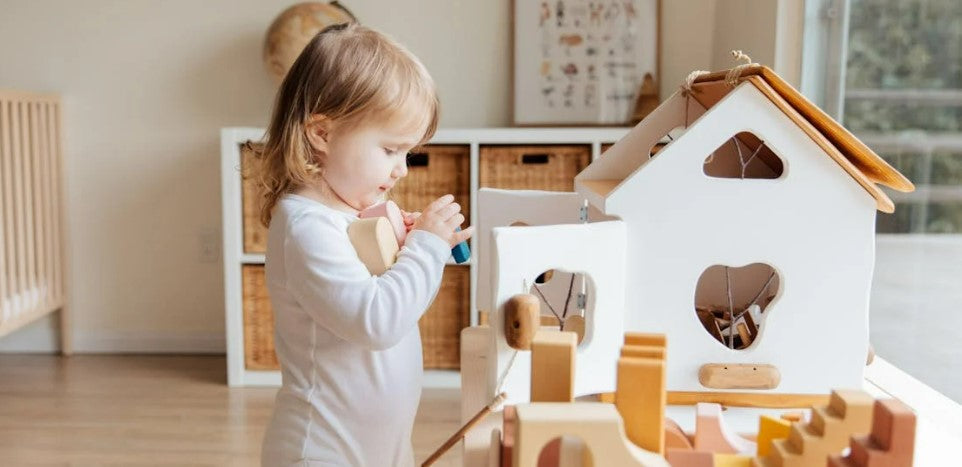Finding the Perfect Educational Toys for Your Baby: A Guide to Nurturing Development

Hey Parents, visiting a baby or welcoming a little one into your life is always a heartwarming experience. But when it comes to choosing a gift, it can be tricky to find something that’s both fun and beneficial for the baby’s development. Educational toys are a fantastic option, offering a range of benefits that can help foster your baby’s growth and learning. Here’s a guide to help you shop for educational toys that truly make a difference.
Why Educational Toys Matter
Educational toys are designed to stimulate a baby’s senses and encourage cognitive and physical development. They can help with skills like problem-solving, fine and gross motor skills, language development, and social interaction. Choosing the right educational toys can give a child a head start in these critical areas of growth.
Top Categories of Educational Toys
-
Sensory Toys
- What They Do: Stimulate the senses through various textures, colors, and sounds.
- Examples: Soft blocks, textured balls, and activity mats.
-
Benefits: Sensory toys can enhance tactile and auditory perception and improve hand-eye coordination.
-
Stacking and Sorting Toys
- What They Do: Promote fine motor skills and hand-eye coordination through activities like stacking blocks or sorting shapes.
- Examples: Stacking rings, shape sorters, and nesting cups.
-
Benefits: These toys help with spatial awareness, problem-solving skills, and dexterity.
-
Musical Toys
- What They Do: Introduce babies to different sounds and rhythms, promoting auditory development.
- Examples: Musical instruments like xylophones, maracas, and toy pianos.
-
Benefits: Music toys can improve auditory processing and rhythm recognition and can be a fun way to introduce concepts of cause and effect.
-
Interactive Books
- What They Do: Encourage language development through pictures, textures, and simple stories.
- Examples: Cloth books, touch-and-feel books, and board books with flaps.
-
Benefits: These books support early literacy skills, vocabulary development, and bonding time with caregivers.
-
Educational Puzzles
- What They Do: Challenge babies to solve problems and fit pieces together.
- Examples: Wooden puzzles, chunky jigsaw puzzles, and shape recognition puzzles.
-
Benefits: Puzzles enhance cognitive skills, hand-eye coordination, and spatial reasoning.
-
Building Toys
- What They Do: Allow babies to construct and deconstruct, fostering creativity and problem-solving.
- Examples: Soft building blocks, LEGO Duplo, and magnetic building sets.
- Benefits: Building toys support fine motor development, creativity, and an understanding of cause and effect.
Tips for Choosing the Right Educational Toy
-
Consider Age Appropriateness: Always choose toys that are suitable for the baby’s age. This ensures safety and maximizes developmental benefits.
-
Look for Quality Materials: Opt for toys made from safe, non-toxic materials. Ensure they are durable and free from small parts that could be a choking hazard.
-
Prioritize Safety: Check for any safety certifications and avoid toys with sharp edges or small parts.
-
Focus on Engagement: Select toys that can hold the baby’s attention and encourage active participation. Interactive features often make toys more engaging.
-
Balance Fun and Learning: While educational toys are valuable, they should also be enjoyable. A happy baby is more likely to engage with and benefit from their toys.
When visiting a baby or choosing a gift for a little one, educational toys offer a wonderful way to contribute to their growth and development. By selecting toys that stimulate the senses, promote problem-solving, and encourage creativity, you’re giving a gift that supports the child’s learning journey. With so many fantastic options available, finding the perfect educational toy can be a rewarding experience that benefits both the baby and their family.
Happy toy shopping, and here’s to nurturing a bright future with the right educational tools!


